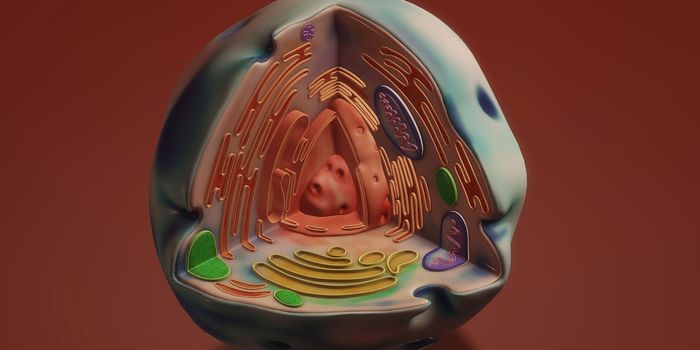A Blood Condition Increases Some Disease Risk, but Reduces Alzheimer's Potential
A blood condition called clonal hematopoiesis of indeterminate potential (CHIP) that has been linked to multiple disorders may actually protect against Alzheimer's disease. The findings have been reported in Nature Medicine.
In CHIP, genetic mutations build up in blood stem cells, promoting their growth and survival. This causes those mutant cells to gradually become dominant over time, and eventually, they may give rise to most of blood and immune cells. Dominant blood stem cells can contribute four to 30 percent of those cells in CHIP carriers. Previous work has shown that those with CHIP are far more likely to get certain diseases; coronary heart disease and chronic liver disease are about twice as likely while blood cancers like myeloid leukemias are ten times more likely. The reasons for these links are unclear, however.
When researchers assessed patients over a ten to fifteen year period, CHIP was found to be linked to a significant decrease in Alzheimer's disease likelihood.
People with CHIP have anywhere from a 30 to 50 percent reduction in Alzheimer's risk compared to people without CHIP. Another genetic variant that arises in a gene called APOE2 has also been connected to reduced chances of Alzheimer's, and this latest variant has about the same impact, said Siddhartha Jaiswal, MD, PhD, an assistant professor of pathology at Stanford Medicine.
This association held when other risk factors were taken into account as well. "We thought there might be some kind of survivor bias - that people with CHIP were more likely to die before developing Alzheimer's disease - but the decrease in risk still held after adjusting for that," Jaiswal explained. Another analysis showed that people with Alzheimer's disease were less likely to have CHIP, too.
While associations don't usually demonstrate a causal relationship, the researchers found that CHIP could causally inhibit Alzheimer's development.
There are immune cells in the brain called microglia. The researchers analyzed brain samples from people with CHIP and CHIP-associated blood cell mutations, and found those mutations in 30 to 90 percent of the microglia. The proportion of mutant microglia was about the same as the proportion of mutant blood cells.
"This suggests that cells are migrating from the blood into the brain," said Jaiswal, which contradicts accepted dogma. "It's a remarkable finding."
The brain samples from people with CHIP also showed lower levels of Alzheimer's hallmarks called amyloid plaques.
The researchers still don't know how Alzheimer's is affected by the mutant microglia. Microglia are known to battle microbes and clean up waste products in the brain. "One hypothesis is that the mutations that promote a growth advantage in blood stem cells also promote microglial expansion and activity, boosting microglia's ability to fight the conditions that lead to brain disease," Jaiswal said.
More work will be needed, but this study could open the door to a new approach in Alzheimer's treatments.
Sources: Stanford University, Nature Medicine









